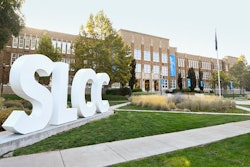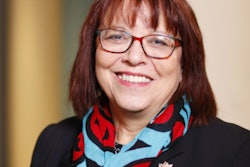At the Pine Ridge Indian Reservation in South Dakota, a group of college entrepreneurs are preparing to enter the global market by launching an American Indian news service — and without ever having to step foot off the reservation.
“You don’t need to leave the reservation to have global or regional impact because of the technology,” says Glorianna Cordova, a founding member of the new Red Wire news service. Cordova, who along with her four business partners, attends Oglala Lakota College in Pine Ridge, where she is studying digital video and new media production.
If they are successful in executing their business plan, Red Wire will provide subscribers from around the world an Internet-based source of news by and about American Indians. After decades of being defined by the mainstream media’s view of what is news in Indian Country, Cordova and her classmates are convinced they have found a niche by adding a Native perspective.
The reservation-based business is just an example of the role that the American Indian Higher Education Consortium says tribal colleges can play in helping to develop local Native economy.
The business plan created by Cordova and her team — who range in age from 22 to 60 — would probably not have been possible years ago. One of the poorest regions in the nation, unemployment rates at Pine Ridge have topped 80 percent. The reservation’s rural location does little for their casino business. And past efforts by the federal government to create a sustainable economy have never come to fruition. Even after a highly publicized visit from then-President Bill Clinton in 1999, in which he vowed to help find new sources of economic development for the tribe, the status quo remains unchanged.
Seven years ago, an AIHEC report concluded that tribal colleges could better serve their students by offering solid programs in economic development. Sitting Bull College in Fort Yates, N.D., has seized upon that mission, and was named last year to Fortune Small Business magazine’s list of “10 Cool Colleges for Entrepreneurs.”
Kathy Aplan, who is Cheyenne River Sioux and director of the television program at OLC, says the Red Wire business plan has the potential to be a legitimate success. “I felt that the project is very viable, with proper training and education in the various areas they need to incorporate to be able to make and maintain this business. I feel it could be very successful.”




















